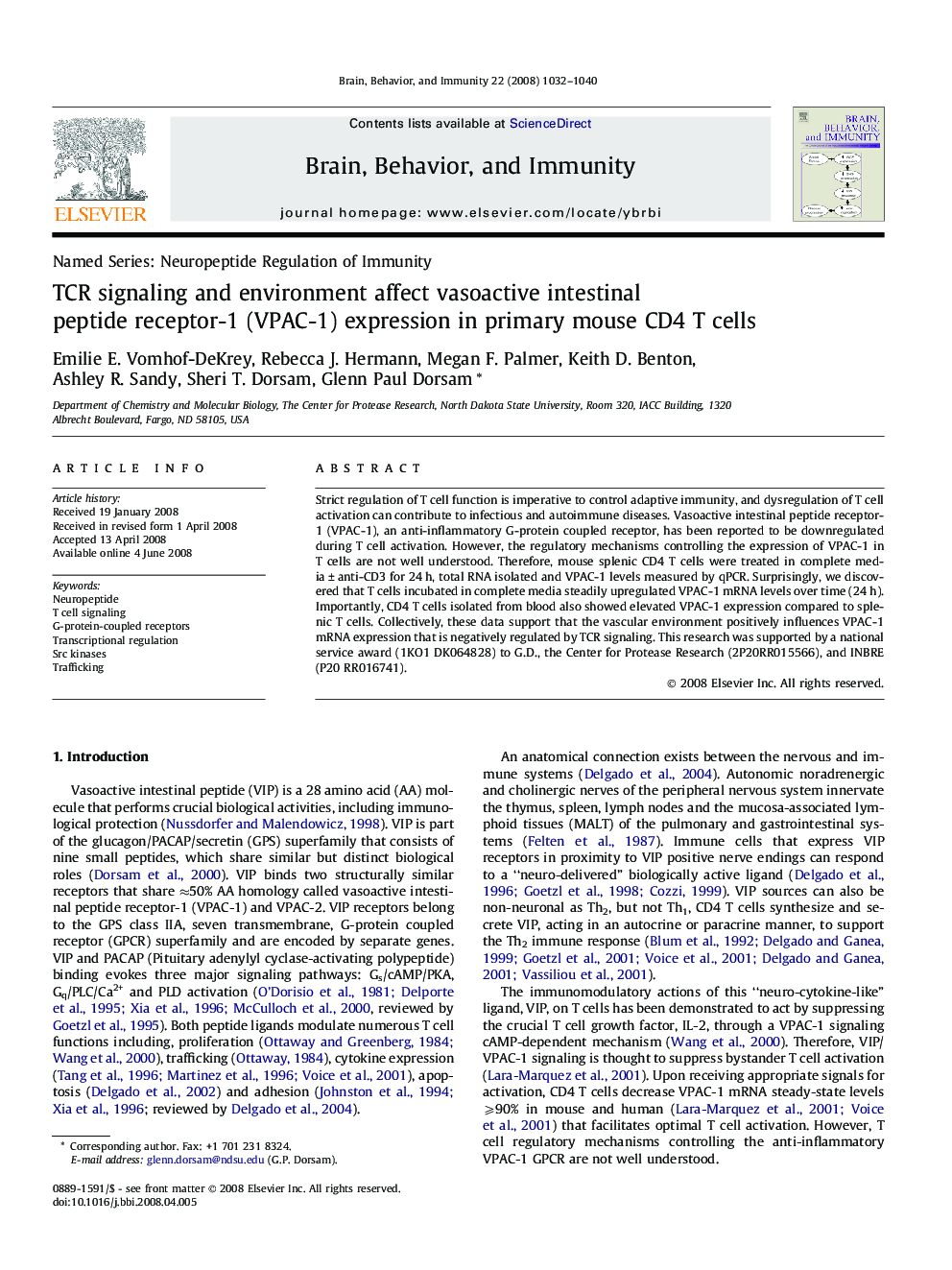| Article ID | Journal | Published Year | Pages | File Type |
|---|---|---|---|---|
| 923246 | Brain, Behavior, and Immunity | 2008 | 9 Pages |
Strict regulation of T cell function is imperative to control adaptive immunity, and dysregulation of T cell activation can contribute to infectious and autoimmune diseases. Vasoactive intestinal peptide receptor-1 (VPAC-1), an anti-inflammatory G-protein coupled receptor, has been reported to be downregulated during T cell activation. However, the regulatory mechanisms controlling the expression of VPAC-1 in T cells are not well understood. Therefore, mouse splenic CD4 T cells were treated in complete media ± anti-CD3 for 24 h, total RNA isolated and VPAC-1 levels measured by qPCR. Surprisingly, we discovered that T cells incubated in complete media steadily upregulated VPAC-1 mRNA levels over time (24 h). Importantly, CD4 T cells isolated from blood also showed elevated VPAC-1 expression compared to splenic T cells. Collectively, these data support that the vascular environment positively influences VPAC-1 mRNA expression that is negatively regulated by TCR signaling. This research was supported by a national service award (1KO1 DK064828) to G.D., the Center for Protease Research (2P20RR015566), and INBRE (P20 RR016741).
